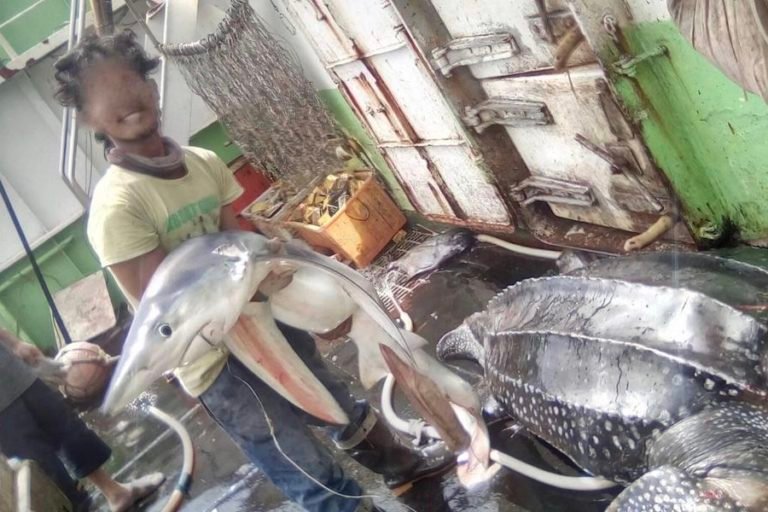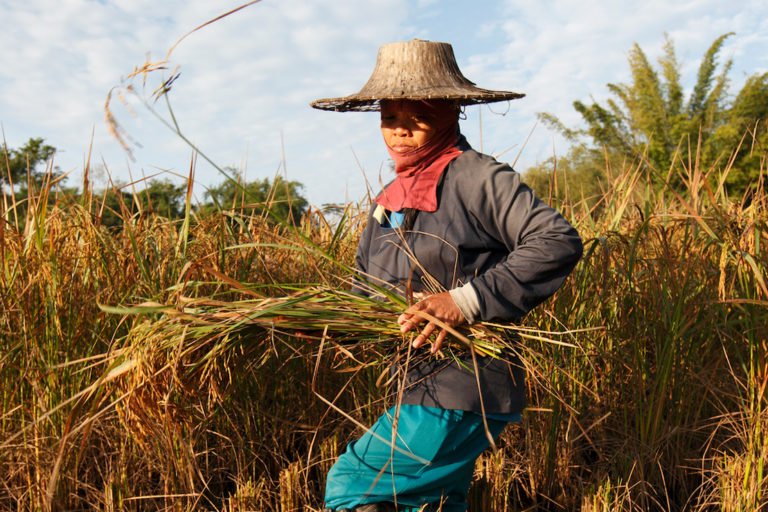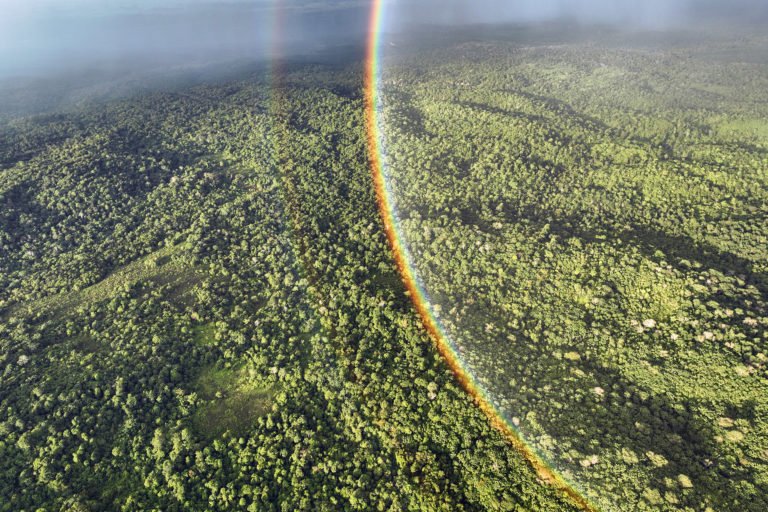- “Ecuador had not declared community protected area management by Indigenous peoples until Tiwi Nunka Forest. This area is the first of its kind in Ecuador, and one of the few in the entire Amazon,” says our first guest on this episode, Felipe Serrano.
- Serrano is the Ecuador country director for Nature and Culture International, which helped the Shuar people in their struggle to reclaim this territory and get the forest included in Ecuador’s National System of Protected Areas.
- We also speak with journalist Paul Koberstein about the flawed basis for the U.S. State of Washington’s new and unusual climate solution: cutting down forests.
- The state claims that it’s more effective to store carbon in wood products than it is to keep forests standing, but as Koberstein shares, research shows that only a small percentage of the carbon remains in wood products, and the rest is lost to the atmosphere, so activists are pushing for a change in policy.
We have two fascinating conversations about forests in the Americas for you on this podcast episode: the first is the story of how the Shuar Indigenous community in Ecuador recently won a major victory to protect its ancestral territory of Tiwi Nunka Forest from cattle ranchers, loggers and miners:
“Ecuador had not declared community protected area management by Indigenous peoples until Tiwi Nunka. This area is the first of its kind in Ecuador, and one of the few in the entire Amazon,” says Felipe Serrano. He’s Ecuador country director for Nature and Culture International, which helped the Shuar people in their struggle to reclaim their territory and get the forest included in Ecuador’s National System of Protected Areas.
We also speak with Paul Koberstein, editor of the Cascadia Times, an environmental journal based in Portland, Oregon, who with Jessica Applegate recently published “Deep Cut,” an article in Earth Island Journal that details the flawed scientific basis for the U.S. State of Washington’s unusual climate solution: cutting down forests.
Click the play button to listen here:
El Kiim is the name of the Shuar community that has been striving to protect Tiwi Nunka, its ancestral forest of nearly 5,500 hectares (nearly 14,000 acres). Though the territory is now included in Ecuador’s National System of Protected Areas, the struggle took decades and was aided by Nature and Culture International, which has helped over 30 communities to secure land rights.
Under Ecuadorian law, the Shuar only owned the surface of the land, meaning there was still a threat from extractive industries eager to come and exploit the resources underneath the soil’s surface. But the announcement in July means that Tiwi Nunka Forest would officially become part of Ecuador’s National System of Protected Areas, and so the Shuar are now fully in control of their richly biodiverse forest.
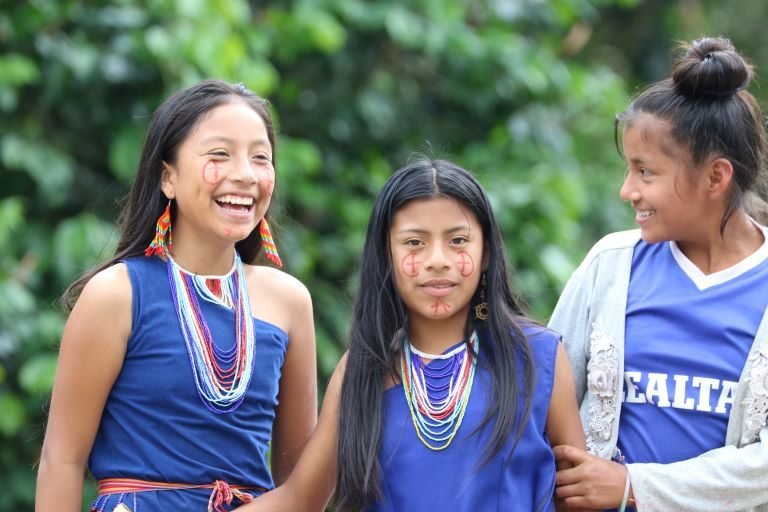
Meanwhile in Washington, a law signed by Washington Governor Jay Inslee made the cutting of forests a part of the state’s official strategy to mitigate climate change, based on the flawed premise that it’s more effective to store carbon in wood products like lumber and plywood than it is to keep forests standing. But as journalist Paul Koberstein says, only a small percentage of the carbon remains in wood products, and the rest is lost to the atmosphere.
“These forests have been the subjects of campaigns by the forest advocacy community for decades for the purpose of protecting biodiversity like spotted owls, salmon, and other species. Now, they see these forests as giant carbon storehouses and argue that ‘forest defense is climate defense,’ and that makes sense,” Koberstein says.
His forthcoming book with Jessica Applegate due out in February 2023, “Canopy of the Titans,” has plenty more to say about this and why the temperate rainforests of the Pacific Coast of North America are unique and important: the pair calls these forests the ‘Amazon of the North.’
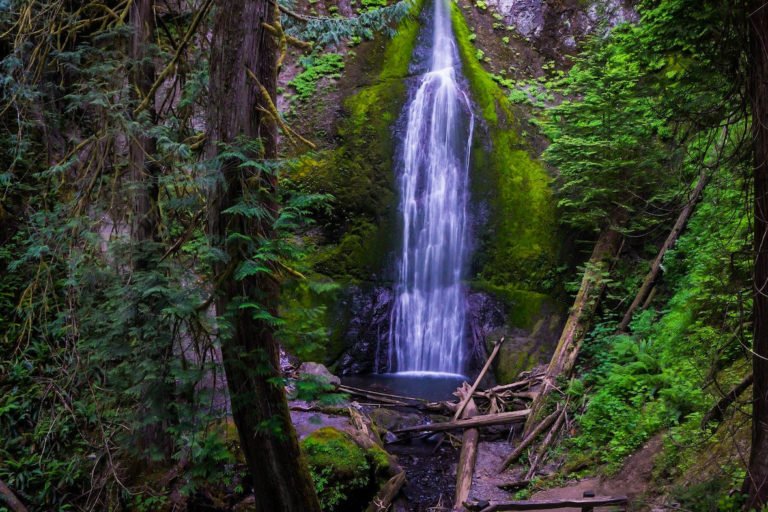
Related reading:
Subscribe or follow the Mongabay Newscast wherever you get your podcasts, from Apple to Spotify, you can also listen to all episodes here on the Mongabay website or download our free app for Apple and Android devices to gain fingertip access to new shows and all our previous episodes.
Follow Mike Gaworecki on Twitter here: @mikeg2001
See related coverage here at Mongabay:
In new climate deal, Norway will pay Indonesia $56 million for drop in deforestation, emissions




